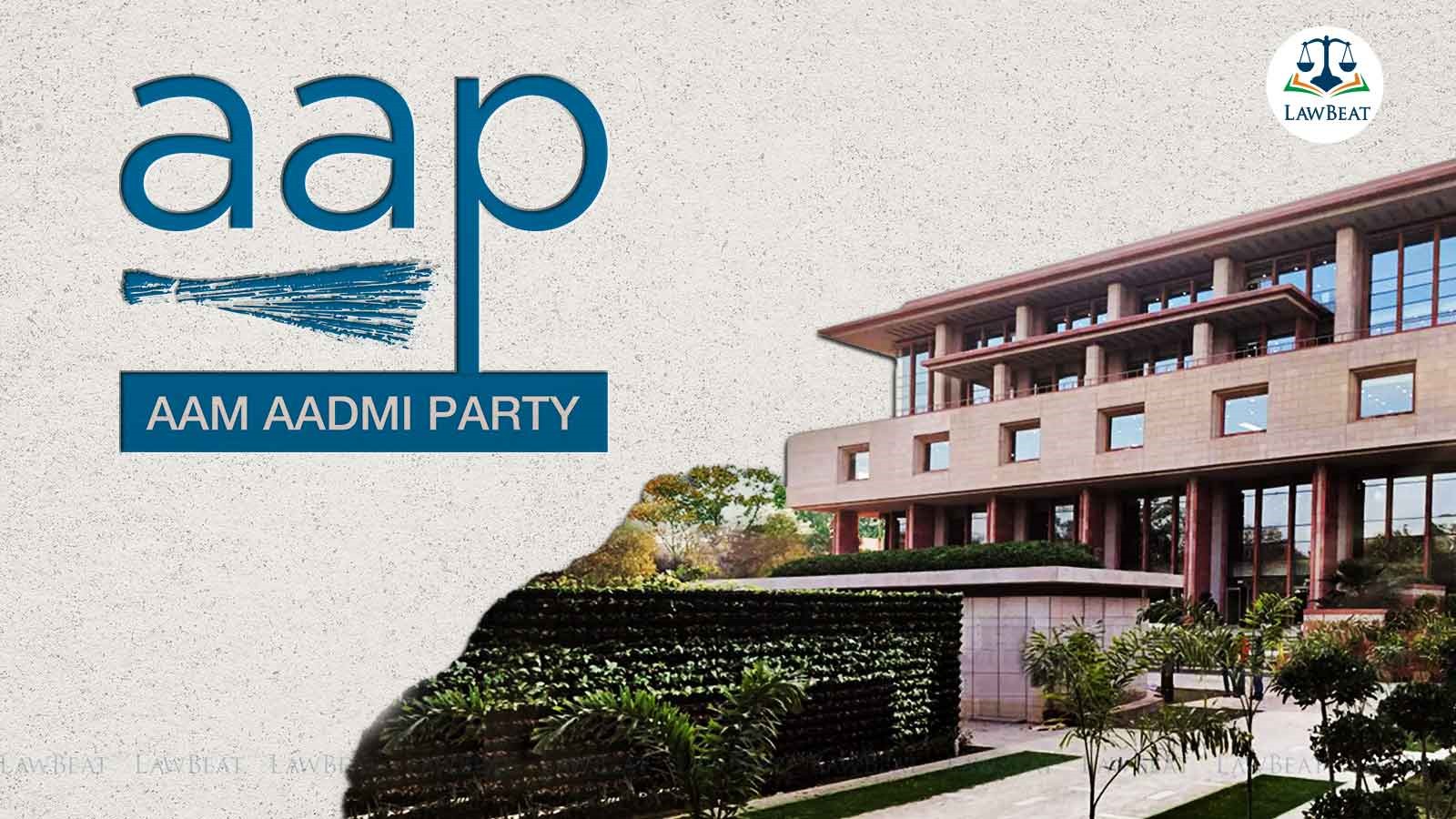‘Why Can't Even One GPRA Housing Unit Be Allotted to AAP?' Delhi High Court Asks Union Govt

Court noted that national political parties can retain one housing unit from the General Pool for their office use, paying a license fee
The Delhi High Court, on Wednesday, directed the Union of India to provide a detailed order explaining why a General Pool Residential Accommodation (GPRA) housing unit could not be allotted to the Aam Aadmi Party (AAP), despite similar accommodations being allotted to other political parties.
The bench of Justice Subramonium Prasad said, “The Respondents are directed to consider the request of the Petitioner within six weeks from today and take a decision by passing a detailed order as to why even one housing unit from the GPRA cannot be allotted to the Petitioner when all other political parties have been allotted similar accommodation from the GPRA”.
AAP had filed a writ to secure a temporary office accommodation from the GPRA until a permanent office could be constructed on allotted land.
Initially, in 2002, the President of India allocated plots to the State Government for Family Courts, which were taken into possession in 2006. AAP, registered as a political party in 2013 and recognized as a State Party later that year, was offered land in Saket for a permanent office in 2014 but rejected it, seeking a location in central Delhi instead. Policy guidelines issued in 2012 and adopted in 2015 allowed such land allotments to recognized parties.
Consequently, the government allotted Bungalow No. 206, Rouse Avenue to AAP in 2015 for temporary use, but this was canceled by the Lt. Governor in 2017, leading to a court order for reconsideration. In 2020, the Land and Development Office (LDO) canceled the government's allotment of DDU Marg plots and offered an alternative nearby plot. Recognized as a National Party in 2023, AAP requested a temporary GPRA unit and permanent office land.
The Supreme Court directed AAP to vacate Bungalow No. 206 by June 2024 and seek alternate land from the LDO. However, AAP rejected the LDO's subsequent offer of plots in Saket and filed another writ for a centrally located plot. The Ministry of Urban Affairs cited a shortage of GPRA units due to redevelopment, making it infeasible to allocate a unit for AAP’s office use.
Senior Advocate Rahul Mehra, representing AAP, argued that the party, as a recognized National Party, sought a temporary unit from the Directorate of Estates (DoE) for office use. He referenced the Allotment of Government Residences Rules, 1963, which allowed recognized National Political Parties to secure a housing unit from the General Pool in Delhi for three years while they acquired land and constructed permanent offices. He also noted that National Parties receive residential accommodation for their Party President, provided they hold no other accommodations.
Standing Counsel Kirtiman Singh, representing the State, countered that the LDO had already reallocated land adjacent to Rouse Avenue to the government instead of DDU Marg for setting up Family Courts. He argued that since the government received alternative land, they should return the said plots to the LDO. Standing Counsel Singh pointed out that the bungalow on these plots was occupied by a Minister, who was asked to vacate it for alternative accommodation. He concluded that AAP, as a political party, could not claim the land as a right and highlighted an acute shortage of general pool accommodations.
The court observed that the President of India had sanctioned the allotment of Plots No. 23 and 24, DDU Marg, to the government for setting up Family Courts in Delhi, with possession taken on August 3, 2006. This allotment was canceled on September 18, 2020, and an adjacent plot was provided to the government for the same purpose. Concurrently, Bungalow No. 206, Rouse Avenue, was temporarily allotted to the AAP, then a State Party, for use as its party office. On March 4, 2024, the Supreme Court directed AAP to vacate the bungalow by June 15, 2024, to allow for the land's use in expanding the district judiciary and instructed the LDO to consider AAP’s request for alternative land. The LDO offered plots in Saket, but AAP did not respond.
The court concurred with the government that AAP had no right to claim Plots No. 23 and 24, DDU Marg, which the government was ready to return to the LDO. Nevertheless, the court acknowledged AAP's status as a National Political Party, entitling it to temporary GPRA housing for office use for three years while securing land for a permanent office. AAP had previously rejected an offer for land in Saket in 2014 and had not responded to the 2024 offer for alternative plots. However, this did not negate AAP’s right to temporary accommodation from the GPRA. The court noted that there was no record of AAP's request for GPRA housing being rejected, and despite pressure on the housing pool, other political parties had received accommodations under similar circumstances.
“A perusal of the said Clause indicates that National Political Parties have a right to retain/secure allotment of one housing unit from General Pool in Delhi for their office use on payment of licence fee and the said accommodation will be provided for a period three years during which the party would acquire a plot of land in an institutional area and will construct its own accommodation for party office” the court opined.
Consequently, the court directed the government to consider AAP’s request within six weeks and issue a detailed order explaining why even one housing unit from the GPRA could not be allotted to AAP, especially when other political parties had received similar accommodations.
Case Title: Aam Aadmi Party v Union Of India Through Its Secretary & Anr
